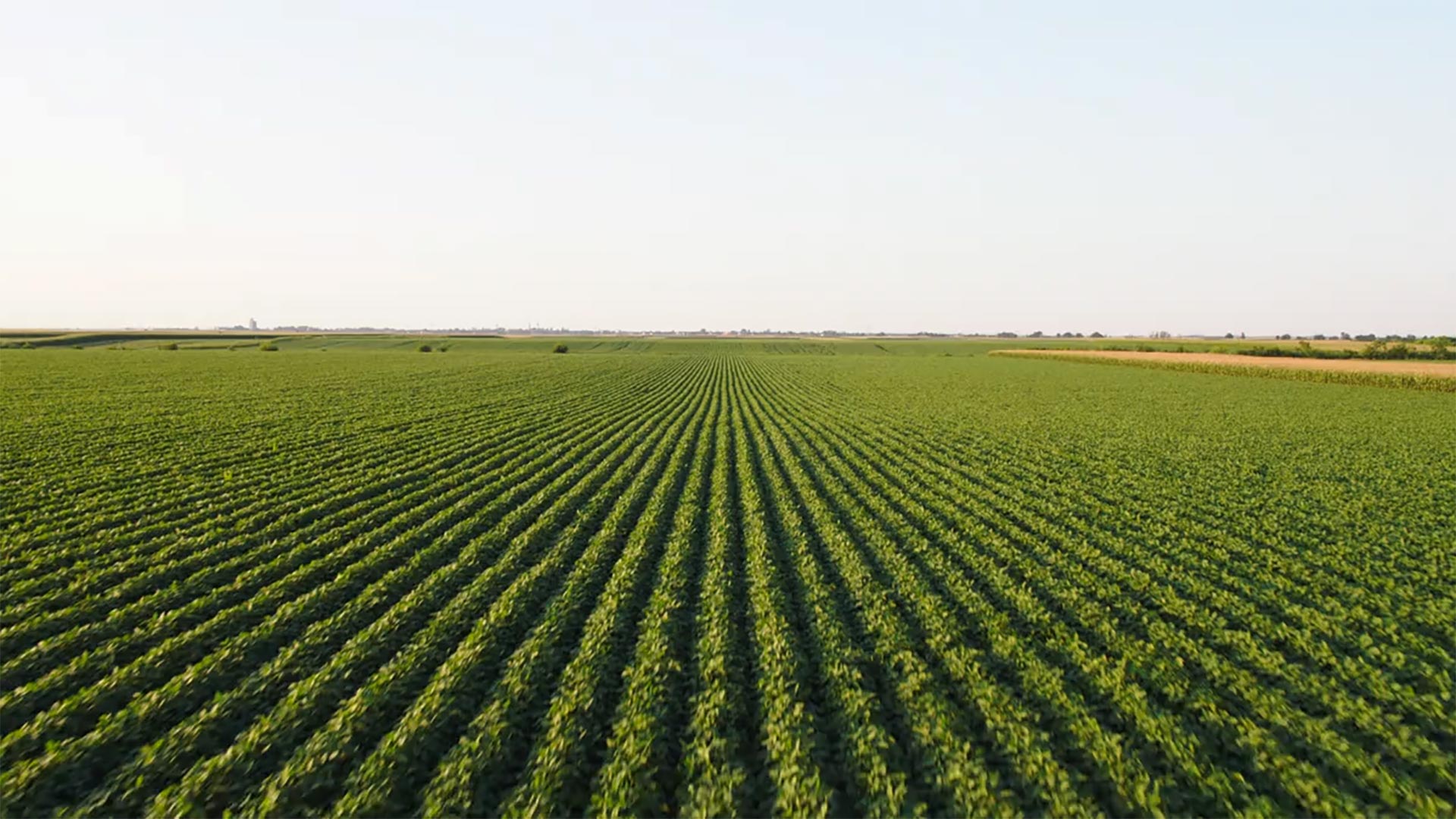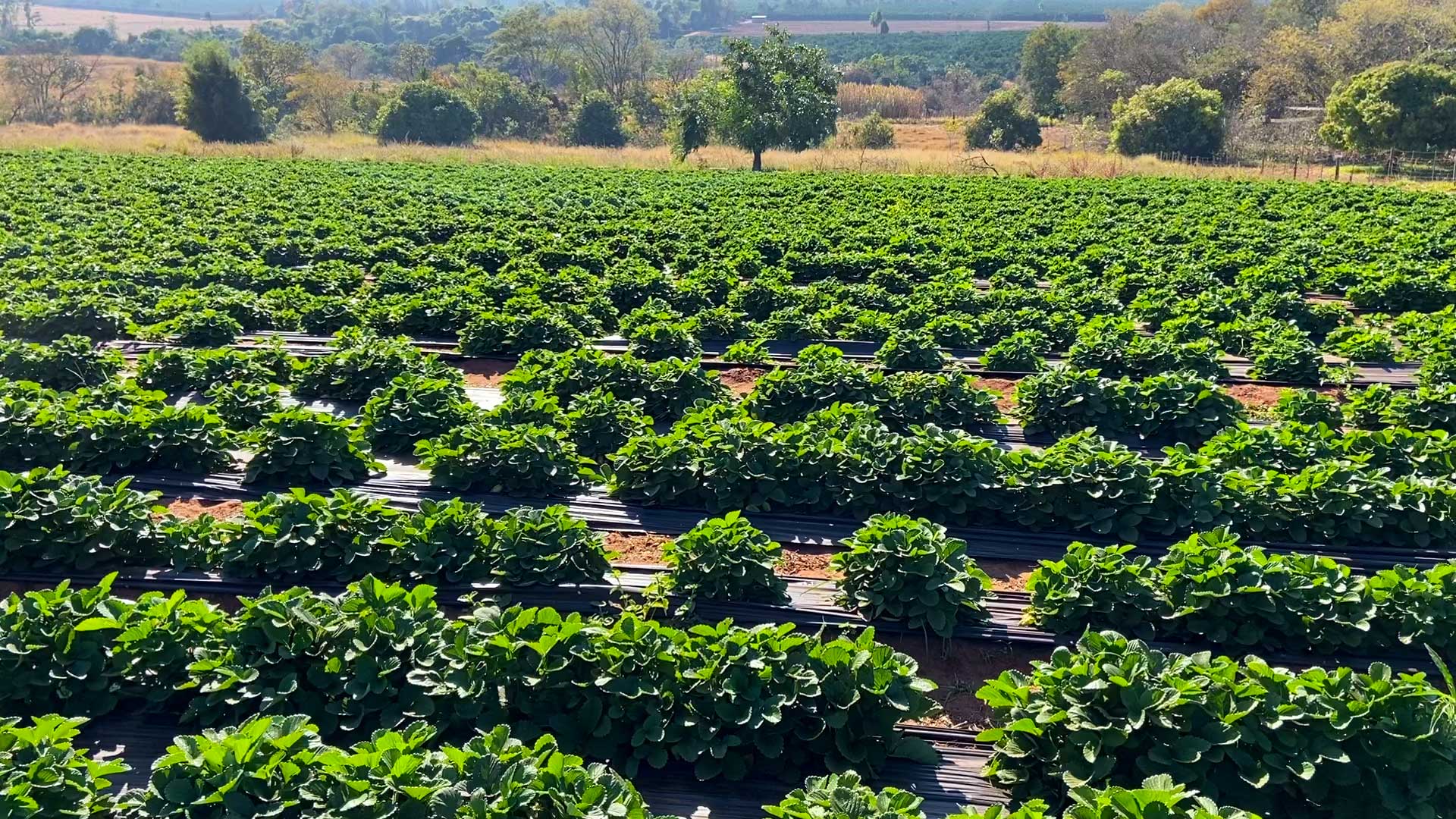
Agribusiness in Brazil
Feeding the world, reinforcing livelihoods, and protecting the planet
Brazil is a global powerhouse in crop production, with agribusiness hitting record highs of over $120 billion last year. And it’s no surprise either, given Brazil’s vast expanse of open land, enviable environment for growth, and a government committed to growing its reach even further. Farmers and policymakers alike are implementing innovative methods to make their land usage more efficient, productive, and profitable while honoring their commitment to sustainability.

With an estimated 300 million tons of grain harvest forecast for this year alone, Brazil is affirming its position as the world’s 4th largest food producer. It leads the global charts in the production of soy, sugarcane, and corn and feeds every corner of the world with additional exports of rice, beans, cotton, poultry, and meat.
The prospect of growth is exciting, but conservation is crucial, and the government takes its environmental responsibility seriously. With a dedication to feed its people and preserve its land for years to come, the Brazilian government has implemented regulations to maintain healthy business without sacrificing sustainability.

Increased access breeds opportunity
Brazil’s expansive shoreline and waterways give way to huge growth potential in aquaculture; the breeding, raising, and harvesting of fish, shellfish, and aquatic plants. So far this year, the government has authorized over 120 contracts to access Union Waters to farm, resulting in a wave of 5,000 direct and indirect jobs from this one initiative, as well as an increased production capacity of some 54 million tons of fish per year.
For rural fisheries, accessing credit has historically been a barrier to growth. This year, however, more than 800,000 family farmers have obtained almost $10 billion in controlled-interest loans to increase production – representing a huge boost for aquaculture in Brazil.
With an enviable freshwater environment for fish to thrive and access to expansive grain for feeding, Brazil is in prime position to grow its exports. And it’s well on the way: in 2021, Brazilian farmed fish exports grew 49%, with the main export being Tilapia. Despite record investments in aquaculture, Brazil still imports more fish than it exports – a trend the government is working to reverse.

Reduced fertilizer imports improve efficiency
As the 4th largest consumer of fertilizer in the world, Brazil’s need for efficient and sustainable procurement has never been more immediate. In early 2022, the Brazilian government began finalizing agreements aimed at neutralizing the risk of supply cuts due to conflict situations in producing regions to ensure the continuity of the country’s fertilizer imports.
Right now, over 85% of the country’s fertilizer is imported, with the government taking ambitious steps to stimulate national production and advocate for more efficient usage.
This year, the Brazilian government announced a “National Fertilizer Plan” with a view to reducing the country’s dependence on imports by almost 40% by 2050. It is also looking to make long-term investments in infrastructure and financial incentives and drastically reduce bureaucracy to encourage foreign investment in Brazil’s domestic fertilizer industry.
Short-term action is also having a significant impact on Brazil’s agricultural community. For farmers, a “Caravan” is traveling to their sites to educate them on efficient fertilizer applications and promote effective and economical soil, water, and plant management. Brazil is now driving toward its goal of using 20% less fertilizer during the 2022/2023 harvest compared to previous years.
Combined, these efforts will reduce its dependence on foreign supply, while increasing domestic production to create new local jobs and opportunities for economic growth. This forward-looking Brazil is one that can feed more of the world while maintaining its commitment to the protection of the environment and the livelihoods of its people.

